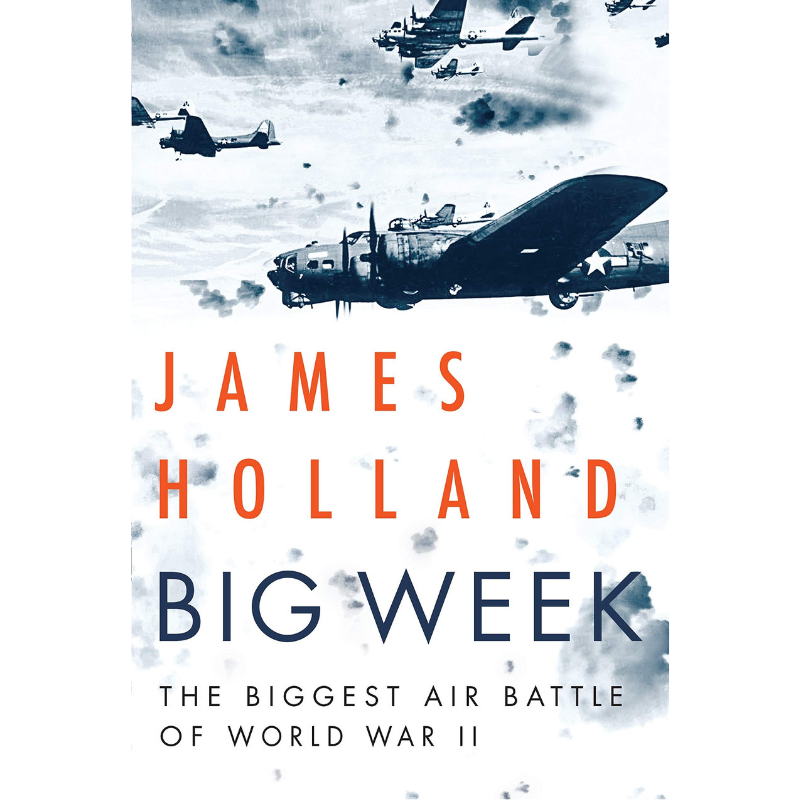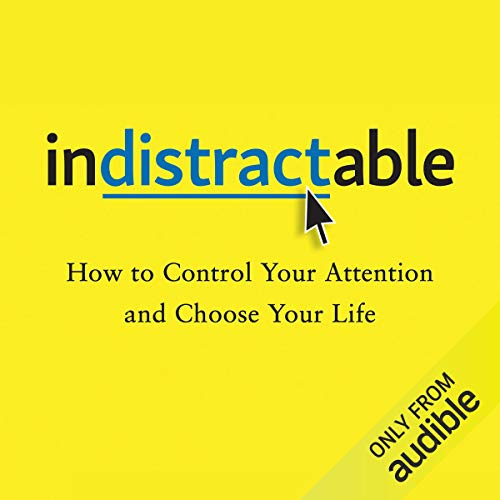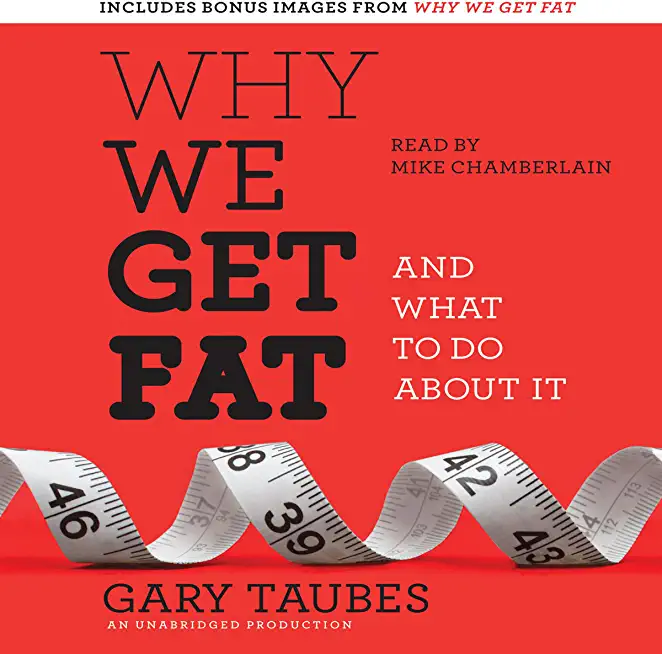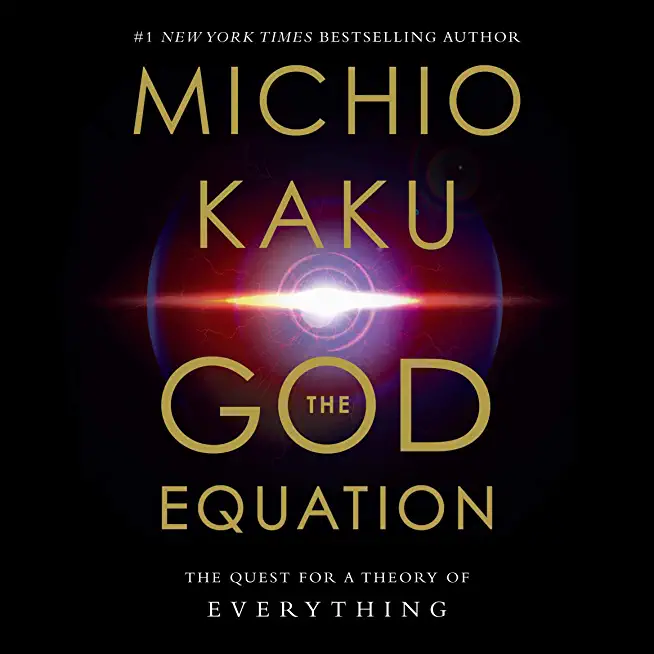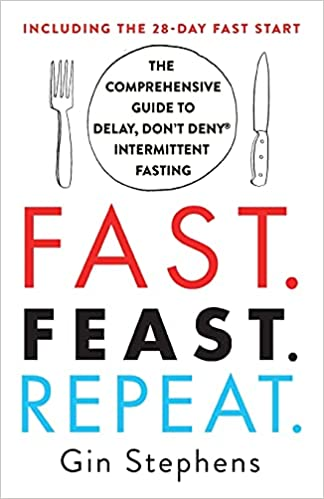What are you reading now?
-
I wouldn’t call Larson a fiction writer. He writes almost exclusively non fiction.
-
People have been preaching for decades that "Calories in = Calories out."
Fung puts lie to that mantra. It's a very complicated picture and it's not only what you eat, but what you absorb (your gut bacteria have a lot to do with that), but your absorption, once it happens is regulated by hormonal factors.
Ghrelin is the mind-killer.
@george-k said in What are you reading now?:
People have been preaching for decades that "Calories in = Calories out."
Fung puts lie to that mantra. It's a very complicated picture and it's not only what you eat, but what you absorb (your gut bacteria have a lot to do with that), but your absorption, once it happens is regulated by hormonal factors.
Ghrelin is the mind-killer.
But where are the studies that confirm his approach to weight loss?
All studies I know of that are conclusive and can be replicated show that, in the big picture, all that matters for weight is whether one eats in a surplus or in a deficit. Want to loose weight? Either eat less calories, or increase calorie expenditure (e.g. by moving more), or both. Macros don't matter much. "Set point" doesn't matter much: If you are in a deficit, you'll loose weight; if you eat in a surplus, you'll gain weight, no matter what the "set point" is. I was overweight for 20 years and then lost 70 pounds. It wasn't easy and it takes a lot of discipline to not get back to my old weight, but I don't give a flying fuck about what my "set point" is. At the end of the day, it's a question of willpower and discipline.
People don't like that picture. They are looking for a scape goat ("it's my genetics" or ...) and for shortcuts. That's why we are so eager to believe in all kinds of alternative realities. But you can't bend the first law of thermodynamics. In a sense, "calories in, calories out" is tautologically true. I know of course that things are more complicated, e.g. calorie expenditure is not independent of calorie intake, base metabolic rate isn't constant and depends on..., ketosis, ... . But what the studies I know of suggest is that these considerations don't have much effect in practice for healthy adults.
-
@george-k said in What are you reading now?:
People have been preaching for decades that "Calories in = Calories out."
Fung puts lie to that mantra. It's a very complicated picture and it's not only what you eat, but what you absorb (your gut bacteria have a lot to do with that), but your absorption, once it happens is regulated by hormonal factors.
Ghrelin is the mind-killer.
But where are the studies that confirm his approach to weight loss?
All studies I know of that are conclusive and can be replicated show that, in the big picture, all that matters for weight is whether one eats in a surplus or in a deficit. Want to loose weight? Either eat less calories, or increase calorie expenditure (e.g. by moving more), or both. Macros don't matter much. "Set point" doesn't matter much: If you are in a deficit, you'll loose weight; if you eat in a surplus, you'll gain weight, no matter what the "set point" is. I was overweight for 20 years and then lost 70 pounds. It wasn't easy and it takes a lot of discipline to not get back to my old weight, but I don't give a flying fuck about what my "set point" is. At the end of the day, it's a question of willpower and discipline.
People don't like that picture. They are looking for a scape goat ("it's my genetics" or ...) and for shortcuts. That's why we are so eager to believe in all kinds of alternative realities. But you can't bend the first law of thermodynamics. In a sense, "calories in, calories out" is tautologically true. I know of course that things are more complicated, e.g. calorie expenditure is not independent of calorie intake, base metabolic rate isn't constant and depends on..., ketosis, ... . But what the studies I know of suggest is that these considerations don't have much effect in practice for healthy adults.
@klaus said in What are you reading now?:
Want to loose weight? Either eat less calories, or increase calorie expenditure (e.g. by moving more), or both.
Yes, no question
Some people may absorb or burn faster than others, but diet and exercise determine the outcome.
-

Interesting book so far.
QUOTE
From the late 19th century, when the Raj was at its height, many of Britain's best and brightest young men went out to India to work as administrators, soldiers and businessmen. With the advent of steam travel and the opening of the Suez Canal, countless young women, suffering at the lack of eligible men in Britain, followed in their wake. They were known as the Fishing Fleet, and this book is their story.
UNQUOTE -
I continue my dive into Alastair Reynolds' books.
Started this today:

- Humanity has raised exploiting the solar system to an art form. Bella Lind and the crew of her nuclear-powered ship, the Rockhopper, push ice. They mine comets. And they're good at it.
The Rockhopper is nearing the end of its current mission cycle, and everyone is desperate for some much-needed R & R, when startling news arrives from Saturn: Janus, one of Saturn's ice moons, has inexplicably left its natural orbit and is now heading out of the solar system at high speed. As layers of camouflage fall away, it becomes clear that Janus was never a moon in the first place. It's some kind of machine -- and it is now headed toward a fuzzily glimpsed artifact 260 light-years away.
The Rockhopper is the only ship anywhere near Janus, and Bella Lind is ordered to shadow it for the few vital days before it falls forever out of reach. In accepting this mission, she sets her ship and her crew on a collision course with destiny -- for Janus has more surprises in store, and not all of them are welcome.
So different from Reynolds' other stuff. As I've said before, his other stuff is complex, obscure and demands total immersion and attention. This, OTOH, is a "popcorn" book - at least that's my impression after having read only about 10% of the book.
-
I've been on an Alastair Reynolds kick for the last several months, as you might realize. I've read all the books, novellas, and short stories in the "Revelation Space" series. Some of them twice (much better on the 2nd read, by the way).
Apparently, Reynolds was asked, in an interview, whether he would ever write a book that could be made into a popular movie. He thought about it, and this was the result.

I'm such a sucker for good science fiction.
This is a quick and easy read (about 500 pages, and I'm halfway through in the last 3 days). Though easy (unlike the RS books books) that's not to say that it's lacking in scope or vision. Pretty simple tale, but well told.
-
I've been on an Alastair Reynolds kick for the last several months, as you might realize. I've read all the books, novellas, and short stories in the "Revelation Space" series. Some of them twice (much better on the 2nd read, by the way).
Apparently, Reynolds was asked, in an interview, whether he would ever write a book that could be made into a popular movie. He thought about it, and this was the result.

I'm such a sucker for good science fiction.
This is a quick and easy read (about 500 pages, and I'm halfway through in the last 3 days). Though easy (unlike the RS books books) that's not to say that it's lacking in scope or vision. Pretty simple tale, but well told.
@george-k said in What are you reading now?:
I'm such a sucker for good science fiction.
This is a quick and easy read (about 500 pages, and I'm halfway through in the last 3 days). Though easy (unlike the RS books books) that's not to say that it's lacking in scope or vision. Pretty simple tale, but well told.
Yup. Good tale.
Reynolds is an adherent to the "gun on the mantle" storytelling school.
This is a sprawling grand tale that leaves you totally satisfied. What's fun is that the prologue to the book throws a bunch of stuff out that you've forgotten. Halfway through the book, he revisits the stuff from the prologue, but, you've forgotten that he said all that stuff.
When you're done, and read the epilogue, you say, "Wait...I have to go back and re-read the prologue."
-
@kluurs said in What are you reading now?:
Finished

Be really interested to hear your thoughts on this one.
-
@kluurs said in What are you reading now?:
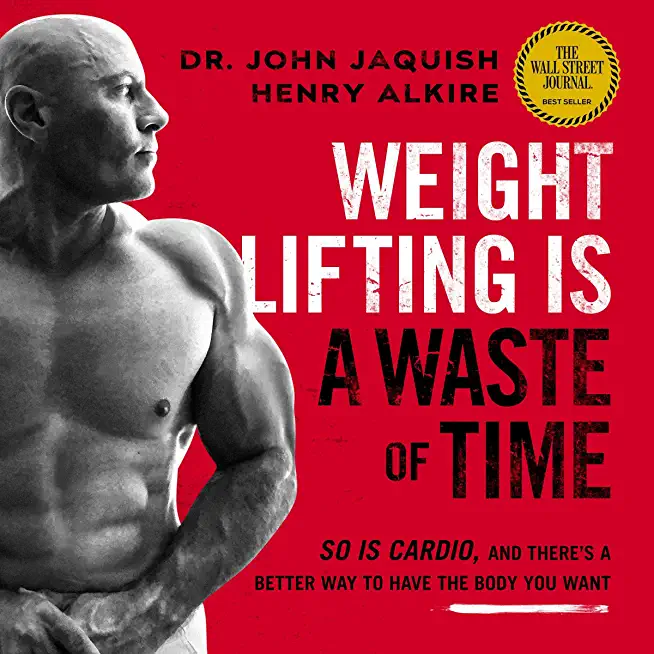
So, why is weight lifting a waste of time? And also cardio?
@horace
The author sites several studies that suggest resistance training is actually a more effective strategy for building muscle than weight lifting. His goal is creating muscle mass - and cites studies that cardio won't aid the goal of lean muscle mass. He also is selling equipment for resistance training - so a good marketer.Of course, every runner will cite studies showing the opposite. I actually have lifted for most of my life. The one thing that is interesting is the suggestion that one should focus on the amount of time under load as opposed to the number of repetitions. Thus, one should aim at muscle fatigue rather than just rote repetitions.
-
@horace
The author sites several studies that suggest resistance training is actually a more effective strategy for building muscle than weight lifting. His goal is creating muscle mass - and cites studies that cardio won't aid the goal of lean muscle mass. He also is selling equipment for resistance training - so a good marketer.Of course, every runner will cite studies showing the opposite. I actually have lifted for most of my life. The one thing that is interesting is the suggestion that one should focus on the amount of time under load as opposed to the number of repetitions. Thus, one should aim at muscle fatigue rather than just rote repetitions.
@kluurs said in What are you reading now?:
@horace
The author sites several studies that suggest resistance training is actually a more effective strategy for building muscle than weight lifting. His goal is creating muscle mass - and cites studies that cardio won't aid the goal of lean muscle mass. He also is selling equipment for resistance training - so a good marketer.Of course, every runner will cite studies showing the opposite. I actually have lifted for most of my life. The one thing that is interesting is the suggestion that one should focus on the amount of time under load as opposed to the number of repetitions. Thus, one should aim at muscle fatigue rather than just rote repetitions.
Interesting. I remember a "super slow" theory of weight lifting, where you spend 30 seconds per rep. That idea has been around for a long time, but it's never been well respected. I think enough people tried it in the free weight world that if it worked well, it would have been recognized as useful.
I think I'll get that Gary Taubes book.
-
@kluurs said in What are you reading now?:
@horace
The author sites several studies that suggest resistance training is actually a more effective strategy for building muscle than weight lifting. His goal is creating muscle mass - and cites studies that cardio won't aid the goal of lean muscle mass. He also is selling equipment for resistance training - so a good marketer.Of course, every runner will cite studies showing the opposite. I actually have lifted for most of my life. The one thing that is interesting is the suggestion that one should focus on the amount of time under load as opposed to the number of repetitions. Thus, one should aim at muscle fatigue rather than just rote repetitions.
Interesting. I remember a "super slow" theory of weight lifting, where you spend 30 seconds per rep. That idea has been around for a long time, but it's never been well respected. I think enough people tried it in the free weight world that if it worked well, it would have been recognized as useful.
I think I'll get that Gary Taubes book.
@horace said in What are you reading now?:
Interesting. I remember a "super slow" theory of weight lifting, where you spend 30 seconds per rep. That idea has been around for a long time, but it's never been well respected. I think enough people tried it in the free weight world that if it worked well, it would have been recognized as useful.
A friend of mine runs a gym in DC that specializes in that. It seems to work for them, but they also do a little bit of everything, not just the slow rep stuff.
Anyway, whatever. The best exercise you can do is whatever you're actually going to want to do on a habitual basis.
-
@horace said in What are you reading now?:
Interesting. I remember a "super slow" theory of weight lifting, where you spend 30 seconds per rep. That idea has been around for a long time, but it's never been well respected. I think enough people tried it in the free weight world that if it worked well, it would have been recognized as useful.
A friend of mine runs a gym in DC that specializes in that. It seems to work for them, but they also do a little bit of everything, not just the slow rep stuff.
Anyway, whatever. The best exercise you can do is whatever you're actually going to want to do on a habitual basis.
@aqua-letifer said in What are you reading now?:
The best exercise you can do is whatever you're actually going to want to do on a habitual basis.
To a point. I redd a pretty convincing argument that emphasizes the importance of balance. That the tendency is to put more energy into muscles that hurt less and give more productive results, with the result that the weaker muscles get shorter and shorter shrift.
-
@aqua-letifer said in What are you reading now?:
The best exercise you can do is whatever you're actually going to want to do on a habitual basis.
To a point. I redd a pretty convincing argument that emphasizes the importance of balance. That the tendency is to put more energy into muscles that hurt less and give more productive results, with the result that the weaker muscles get shorter and shorter shrift.
@catseye3 said in What are you reading now?:
@aqua-letifer said in What are you reading now?:
The best exercise you can do is whatever you're actually going to want to do on a habitual basis.
To a point.
No, always. My point was pragmatic, not scientific.
There's a ton of great information out there about ideal exercises for those of certain ages, body types, and physical strengths and constraints. The advice you just posted was good, for example. But for every one thousand people who read that kind of article, agree with it, and share it with friends, one out of that thousand actually puts that information into habitual practice.
I don't care how good the advice is or what you think your discipline level is, if you don't like doing the activity, then you will very quickly burn out.
Go out, have fun with being active, and if you ever get to a point where that becomes habitual, then maybe start caring about what the advice columns say. Optimize your fitness activities after you actually have some as part of your daily routine.
-
@catseye3 said in What are you reading now?:
@aqua-letifer said in What are you reading now?:
The best exercise you can do is whatever you're actually going to want to do on a habitual basis.
To a point.
No, always. My point was pragmatic, not scientific.
There's a ton of great information out there about ideal exercises for those of certain ages, body types, and physical strengths and constraints. The advice you just posted was good, for example. But for every one thousand people who read that kind of article, agree with it, and share it with friends, one out of that thousand actually puts that information into habitual practice.
I don't care how good the advice is or what you think your discipline level is, if you don't like doing the activity, then you will very quickly burn out.
Go out, have fun with being active, and if you ever get to a point where that becomes habitual, then maybe start caring about what the advice columns say. Optimize your fitness activities after you actually have some as part of your daily routine.
@aqua-letifer said in What are you reading now?:
No, always. My point was pragmatic, not scientific.
I agree that it's the best point to make.
For some reason the easiest sort of exercise for me to stick to is walking up hills. (I could stick with walking on flat surfaces too, but that is truly a waste of time.) It hurts, but not like running or cycling. I used to live on top of a big hill and did it every day for years. My weight stayed at a good spot for those years. Then I moved 20 miles away and without the hill, I stopped exercising, and gained many pounds. I've recently started driving back to the hill every day.
